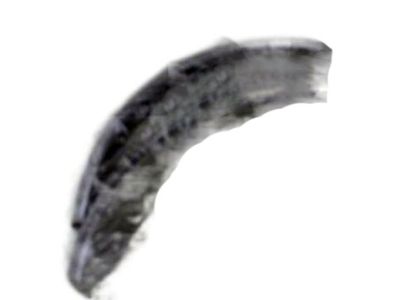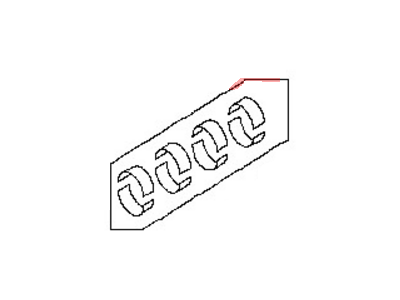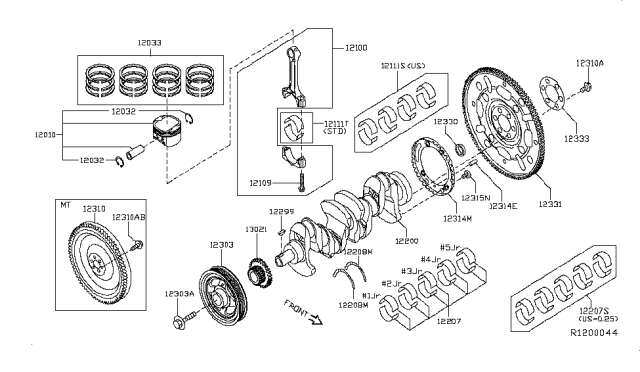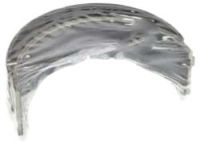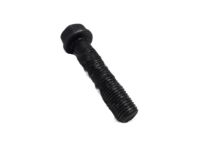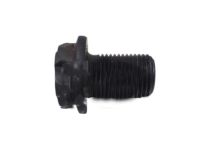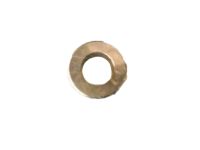Even though the main and rod bearings should be renewed during the engine overhaul, the old bearings should be retained for close examination, as they may reveal valuable information about the condition of the engine, with the bearing shells graded by thickness and indicated by a colour code. Bearing failure can occur due to lack of lubrication, the presence of dirt or foreign particles, overloading the engine, or corrosion, and the cause must be corrected before reassembly to prevent recurrence. When examining the bearing shells, remove them from their locations and lay them out on a clean surface to match any problems with the corresponding crankshaft journal, avoiding contact with the bearing surface to prevent scratches. Dirt and foreign matter can enter the engine during assembly, through filters, or from machining operations, often embedding in the soft bearing material, while large particles may score or gouge the bearing and journal; thorough cleaning of all parts and regular oil and filter changes are essential for prevention. Lack of lubrication can result from excessive heat, overloading, oil leakage, or blocked oil passages, leading to bearing destruction and overheating. Driving habits, such as full-throttle, low-speed operation, can also negatively impact bearing life by causing high loads and fatigue failure, while short-distance driving can lead to corrosion of the engine oil, forming acid that attacks the bearing material. Incorrect installation during assembly can result in oil starvation or high spots on the bearing due to trapped dirt or foreign particles. Care should be taken not to touch the bearing surface during reassembly to avoid scratching or contaminating it, and renewing the bearing shells during engine overhaul is essential to avoid false economy.
Posted by NissanPartsDeal Specialist 
